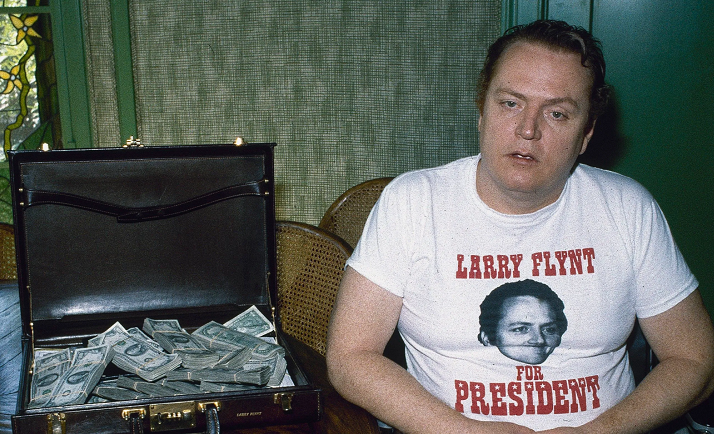Why Congress Gets Free Men’s Magazines

Junk mail today usually consists of catalogs offering all sorts of products for sale, but typically, those products are not sexual. In the early to mid-1960s, though, that wasn’t the case. It was not uncommon for people to open their mailboxes to find something they wouldn’t want their twelve-year-old son to see (even if he really wanted to see it). In the latter part of that decade, the federal government passed a law aiming to help. The new rule: if you received “any pandering advertisement which offers for sale matter which the addressee in his sole discretion believes to be erotically arousing or sexually provocative,” you could ask your post office to issue a “prohibitory order”—that is, the Postal Service could make the sender stop sending that stuff to you.
But not everyone was okay with this. The publishers of these provocative mailers believed that the law violated their First Amendment right to freedom of speech, so they sued to prevent the law from being enforced. And, as anyone who gets mail knows, they lost. The courts decided that while you may have the right to say things, the listener doesn’t have an obligation to pay attention to you. Ultimately, the publishers of this kind of stuff gave up and stopped mailing risque materials unsolicited.
Mostly.
Larry Flint, the publisher of Hustler magazine (which, to be clear, features images of naked women), was a political provocateur as well. In 1998, for example, Flint (pictured above) used his wealth — and his less-than-Puritan brand — to shine a light on infidelity in Congress. As CNN reported, “in a full-page, $85,000 ad in the Washington Post last week, Larry Flynt announced a reward of up to $1 million for anyone who could prove having had ‘an adulterous sexual encounter with a current member of the United States Congress or a high-ranking government official.'” He was no different earlier in his career, either, and in late 1983, he started sending his nudie mags to all 535 members of Congress—free and unsolicited.
Almost immediately, many members of Congress asked the post office to help. And by October of the following year, 264 of those congressional offices had demanded, via the post office, that their free subscriptions be halted.
Flint, though, was undeterred. While he initially stopped sending the free magazines, he quickly sued. His argument was a First Amendment one, but ultimately it didn’t rest on freedom of speech. The First Amendment also guarantees, among other things, the right to petition the government for redress of grievances. Flint argued that he was trying to lead members of Congress to a revelation, opening their eyes to the world around them. As he told The Hill magazine in 2011, “Moses freed the Jews, Lincoln freed the slaves, and I just wanted to free all the neurotics.”
The court agreed.
So every month, each member of Congress receives a plain manila envelope in the mail containing a few dozen pages of satire, political commentary, and naked women. Most offices file the magazines immediately into the recycling bin. But as one congressional staffer anonymously told the Atlantic, some magazines have been put to a different, arguably better use:
For a while, the interns, after their initial shock and befuddlement, were directed to save the Hustlers. We eventually gave a coworker the whole year’s supply for Secret Santa and then she would mail them to her boyfriend in Iraq. Certainly one of the least-heralded ways the office supported our troops.
But yeah, most just throw them out.
Bonus fact: Larry Flint is no stranger to the courtroom, often litigating First Amendment issues. But his most famous legal battle, Keeton v. Hustler, was about the inner workings of the legal system (personal jurisdiction, if your vocabulary includes legal terms of art). He lost and wasn’t very happy about it. After losing the case, he temporarily found himself in contempt of court, for, while still in the Supreme Court building and within earshot of the Justices, dropping an f-bomb, calling the eight male Justices a choice word, and referring to Justice Sandra Day O’Connor as a “token [highly offensive word that starts with the letter C]”. (The contempt charge was dropped shortly thereafter.)
From the Archives: Postal Puzzles: Mail that’s creative and not objectionable.
